Opinion
GHANA, RAISING THE BAR OF DEMOCRACY IN AFRICA
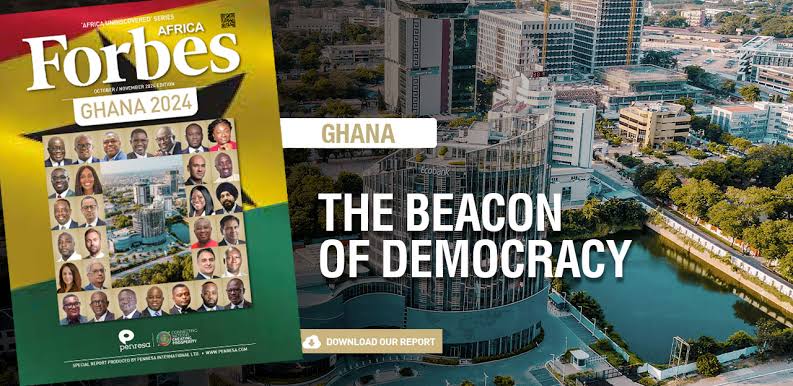
BY BOLAJI AFOLABI
The out-going year has being a special one; variously described, and decorated with flowing and fitting epaulettes. To many people, 2024 is a year of elections. As though planned, about four-dozen countries in Europe, America, Asia, and the Middle East conducted national and regional elections into various legislative and presidential positions. Elections held in the United States of America; Britain; Portugal; Finland; Uruguay; India; Mexico; Jordan; South Korea; Croatia; and Pakistan. Others included Dominican Republic; Belgium; Austria; Venezuela; Indonesia; Sri Lanka; Syria; North Korea; Romania; Bolivia; and Bangladesh. Less popular, and little known nations including El Salvador; Azerbaijan; Taiwan; Panama; San Marino; Solomon Islands; Bhutan; Palau; Tuvalu; and Mongolia also made the cut.
Africa is not left out. About twelve countries in the continent conducted presidential, legislative or local elections. In Comoros; aptly dubbed small archipelago off Africa’s east coast, President Azali Assoumani; former military officer who staged successful coup in 1999 won fourth-term election into the country’s highest office. The Frelimo Party, and Daniel Chapo won the presidential elections in Mozambique, extending it’s dominance to almost 50 years. In Namibia, the SWAPO party consolidated it’s total grip of power and governance by electing Ms. Netumbo Nandi-Ndaitwah as the country’s first female president. Though Cyril Ramaphosa won re-election as South Africa’s president but his party, the African National Congress (ANC) failed to post outright majority, for the first time since Late Nelson Mandela emerged the “rainbow” country’s president in 1994. The ANC had to form a unity government; coalition with other political parties.
Elsewhere, history was made in Senegal, a country that prides herself as the home of democracy in Africa. Forty-four year old Bassirou Diomaye Faye became president in a largely one-sided elections. By this pace-setting feat, the country’s opposition leader who was released from prison few weeks to the elections, became African’s youngest (democratically elected) president. In Botswana, for the first time in 6 decades, an opposition leader; Duma Gideon Boko was elected as president. The development was a milestone as the country has being governed by one party in about 60 years. President Paul Kagame of Rwanda won with about 100 percent of the votes to extend his foothold for close to 30 years.
The December 7 presidential and parliamentary elections in Ghana was unique in several ways. Regarded as West Africa’s democracy lodestar, the elections emerged as arguably the most predictable since the country transitioned to democratic rule in January 1993. Given the preponderance of economic, social, political, and development challenges, many people in various platforms, and handles had postulated victory for the opposition. Like most countries in Africa, Ghana, the 2nd largest cocoa producer in the world, was battling with pervading inflation; accentuating poverty; spiraling depreciation of the national currency; and escalating indebtedness. Also the nation got stuck with non-ingenious foreign borrowings; multifaceted corruption; disabling unemployment; decapitated infrastructure; illegal, mindless gold mining (famously called “galamsey”); leadership ineptness; and citizens unbelievability in government.
Little wonder at the end of the December 7 elections, a new dawn was opened in Ghana’s democratic odyssey. The National Democratic Congress, (NDC) defeated the New Patriotic Party, (NPP) in both the presidential and parliamentary elections. The NDC’s John Dramani Mahama recorded 6,328,397 (56.55 percent) as against NPP’s Mahamudu Bawumia who polled 4,657,304 (41.61 percent) to emerge as the president-elect. At the parliamentary elections, the NDC won 186, while NPP got 81 out of the 267 results declared so far in the 276-legislative body. The parliamentary result is historic and trail-blazing in many ways. The NDC did not only achieved the threshold of 139 seats to have majority but won 47 seats more, and thus became the first political party to achieve this enviable record. The NDC’s electoral triumph was comprehensive, and overwhelming such that Bawumia of NPP conceded victory while few of the results were just being declared by the country’s Electoral Commission headed by Ms. Jean Adukwei Mensa, who was appointed in July 2018, and allegedly accused of being pro-NPP.
The Ghana’s elections presents remarkable, and inspiring templates. The NDC’s candidate, former Ghana’s vice president (2009 – 2012) became president after the death (while in office) of John Atta Mills in July 2012. Mahama, like Goodluck Jonathan subsequently got elected for a 4-year term in December 2012, when he defeated the out-going president, Nana Akufo-Addo, who was the NPP candidate then. Mahama, by the way lost his re-election aspiration in 2016 to Nana Akufo-Addo. By that defeat, like Jonathan, Mahama became the first and only sitting Ghanian president to lose elections while in office. Mahama, whose late father; Emmanuel Adama Mahama was a former member of parliament, Minister and Adviser in Nkrumah and Liman’s respective government lost again to Nana Akufo-Addo in 2020, still as the NDC candidate.
NDC’s victory meant it avoided the negative honour of being the first party to be in opposition after three consecutive elections. Conversely, it denied the NPP of becoming Ghana’s first party to break the circle of eight years dominance. Thus, since 1992 when Ghana embraced democracy, no political party has won beyond 2 consecutive terms at the country’s presidential election. Bawumia, the 61 year old out-going vice president, and NPP candidate; Head of Nana Akufo-Addo’s Economic Management Team, and former Deputy Governor, Ghana’s Central Bank, arguably becomes the country’s first-sitting number 2 man to lose presidential elections. Mahama’s running mate; Prof. Jane Naana Opoku-Agyemang, who was his former Education Minister made history as the first female vice president of the country. That she was picked as running mate; second time in two consecutive elections, is a measure of Mahama’s confidence in the capacities of the 72 years old retired academic, and his believe, respect for gender inclusivity in governance.
As expected, the thrills and frills of Ghana elections has generated reactions. Across the world, the effects and lessons of the polls keeps reverberating in public discourses within and outside Africa. Given the unique, and salient features and outcomes of the elections, many people in Nigeria have learnt their voices to it. The deluge of comments and opinions are far-reaching and encompassing. From policy makers to politicians, institutions, and individuals, many Nigerians are having “their say” on the matter. While few of the comments are logical, some lacked merit, and many are outrightly deceptive, cynical, and comical. They can be described as ego-tripping, and tongue-foolery.
One is happy that the opposition parties are sounding upbeat, and brimming with confidence that the Ghana-experience can happen in Nigeria in 2027. Few opposition leaders even pontificate that with Ghana’s NDC having similar logo-colour with the PDP, it is hopeful that the umbrella party have realistic chances of re-capturing political power in 2027. It is good to dream but such should be backed with very realistic, and focussed doggedness. Perhaps it is trite to reiterate that election winning goes beyond similarities of logo, and colour. The PDP; being the major opposition party should show the way to others in it’s group.
True Ghana’s presidential and parliamentary elections holds once every 4 years; like Nigeria but can one rightly equate party politics in both countries? On the writer’s first visit to Ghana in 2011, after interaction with different categories of people, it was evidently clear that our neighbors, though smaller in population and geographical size are ahead of our dear country in many ways. The reality is that in Ghana, politics is built on ideologies, and ingrained on members from generation to generation. Dramani’s long history with the NDC, and Nana Akufo-Addo’s stay with the NPP are obvious proofs of the party culture, focus, and discipline in Ghana. Party leaders and members are resolute to swim or sink with their respective parties not minding results of elections. Dramani, since he lost the presidential election to Nana Akufo-Addo in 2016, stayed with the NDC by frontally playing his role as the leader, and face of opposition. Happily, his consistency, reliability, doggedness, and commitment was rewarded by Ghanaians at the December 7 elections.
Do we have a semblance of similitude in Nigeria. Here, it is bad that almost all the political parties do not have known ideologies. Even where they have, are they followed with iron-cast resoluteness and believe? Political parties are mainly, and merely used as special purpose vehicles to gain power, and have access to the perks of office. The common, and easily noticeable feature among majority of our politicians is “jumpology.” They regal in shameless, rudderless, and unprincipled gale of defections from party to party after every election circle. Painfully, this disturbing trend has become normalized since 1999, such that very few politicians have not moved from one divide to the other. Sadly, unlike Ghana, politics here is driven by greed, selfish desires, and personal ambitions; which are most cases inordinate and self-seeking.
True democracy can only thrive where there is credible opposition that can effectively and efficiently check and balance the ruling party. Rather than making juicy comments, and salacious opinions about the reenactment of the Ghana political heroics in Nigeria, politicians should do the needful. In doing this, there must be sincere house-cleaning whence some politicians would have to go upstairs and assume advisory roles in their respective parties. Some would have to “sacrifice” their ambitions to various positions. Many should consciously imbibe the true meaning of politics as service to the people. True party discipline should be enthroned. Without operationalizing these, and more necessary fundamentals, expectations of the Ghana-experience will remain a vaunting ambition, and mirage.
* BOLAJI AFOLABI, a development communications specialist was with the Office of Public Affairs in The Presidency.
Opinion
“Chief. Dr. Ekuogbe Akpodiete; A Philanthropist, Lawyer, and Statesman”
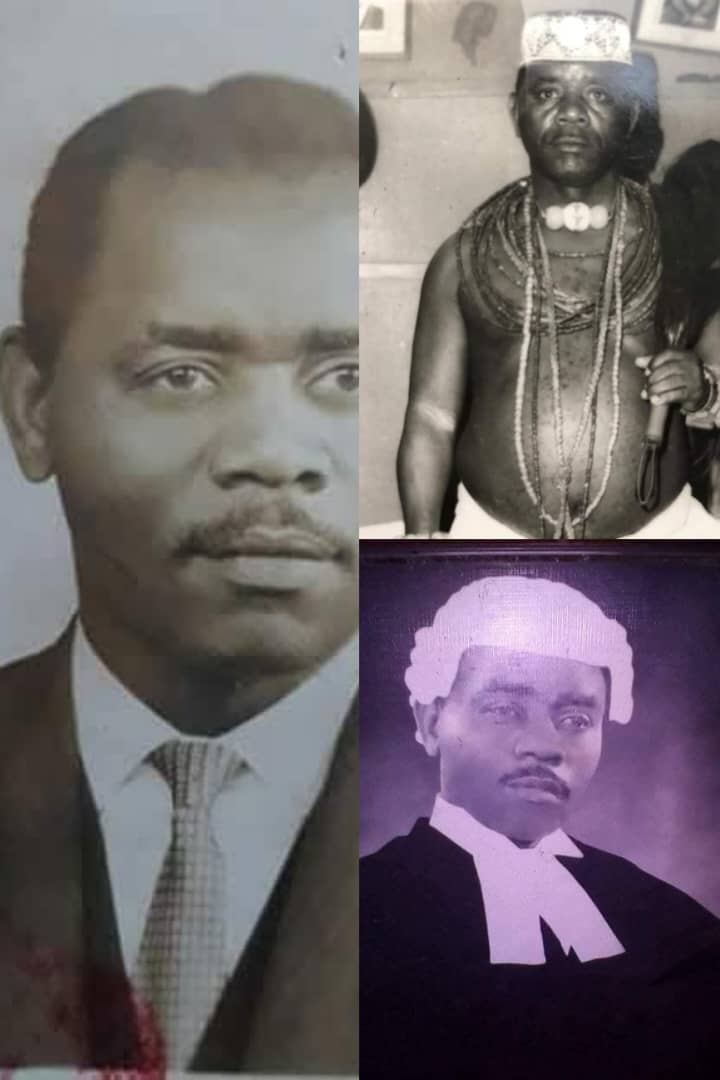
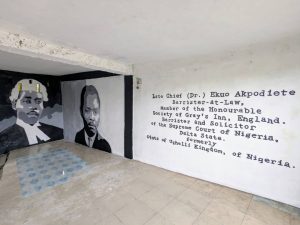
In a life of achievement, Chief Ekuogbe Akpodiete popularly called the Duke by his contemporaries in the UK was an assessment clerk, post office clerk, a court interpreter, an educationist, a business man, a political party chieftain, a Barrister and Solicitor, a Magistrate, the Otota (the Prime Minister) of Ughelli kingdom which is the highest traditional chieftaincy office that underpin the royal office of the Ovie of Ughelli Kingdom.
He was a trail blazer, a strict disciplinarian, a lover of people, and a philantropist. He saw to it that people lived in peace and happiness.
Born on the 4th of April, 1924, to parents cut from an industrious mould, Chief Ekuogbe Rowland Gregory Akpodiete took zealously to education that neither his mother Ughweriaka who was a trader, nor his father Akpodiete who was a farmer had.
He attended the Native Authority Primary School, Ughelli, and Enitona High School, Port Harcourt, for his secondary school education.
He thereafter had a brief teaching career in primary schools in Ofuoma near Ughelli, he worked as a process clerk in the then Sapele Township Department between 1950 and 1953, serving at the same time as an interpreter in the local courts.
He proceeded to the United Kingdom to seek the proverbial Golden Fleece where he worked and paid his way through, studying Law. He was admitted into the Honourable society of Gray’s Inn, England, in 1965, and shortly after, he returned home to Nigeria and attended the Nigerian Law School. He was called to the Nigerian Bar in 1966. He immediately started practice in Lagos. However, his practice in Lagos was regrettably abridged by the Nigerian Civil War, which drove him to his hometown Ughelli in 1967, where he continued to practise among his kith and kin as the first Legal Practitioner.
Chief Ekuogbe Akpodiete established himself in Ughelli. After the civil war, he served in the now defunct Mid-western State Judiciary from 1972 to 1975 as a Magistrate.
He was conferred with the chieftaincy title of Urhukperovie of Ughelli kingdom (the light of the King) by the then reigning Ovie of Ughelli, His Royal Highness Oharisi II of blessed memory in 1977.
In the quest for more knowledge, he went back to England for his Master’s degree in law (LL.M) and later a Ph.D. at the University of Warwick.
He was awarded an honourary doctorate degree (Ph.D) by Tenesse Christian University from the United States of America in 1991.
He became the Otota (the Prime Minister) of Ughelli Kingdom in 1986, an office he occupied until his demise on 9th April 1995.
Chief Ekuogbe Akpodiete was also politically involved. In the heady days of the Awolowo-led Unity Party of Nigeria, he was the party’s legal adviser in Ughelli and was on hand to assist during Chief Obafemi Awolowo’s campaign hosting in Ughelli and its environs.
In view of his love for people and entertainment, he established a popular cinema house, one of the first in Ughelli, known as REGA cinema, coined from his names, alongside an entertainment place called Unutakunu (people talk to people).
Chief Ekuogbe Akpodiete was blessed with wives and many children, grandchildren, and great grand children.
Mr. Olotu Akpodiete, PhD
Executive Director
Olotu & Ekuogbe Rowland Akpodiete foundation
Opinion
OF ABUJA INVESTMENT COMPANY, TAMUNO, WIKE, AND TINUBU’S “RENEWED HOPE” AGENDA
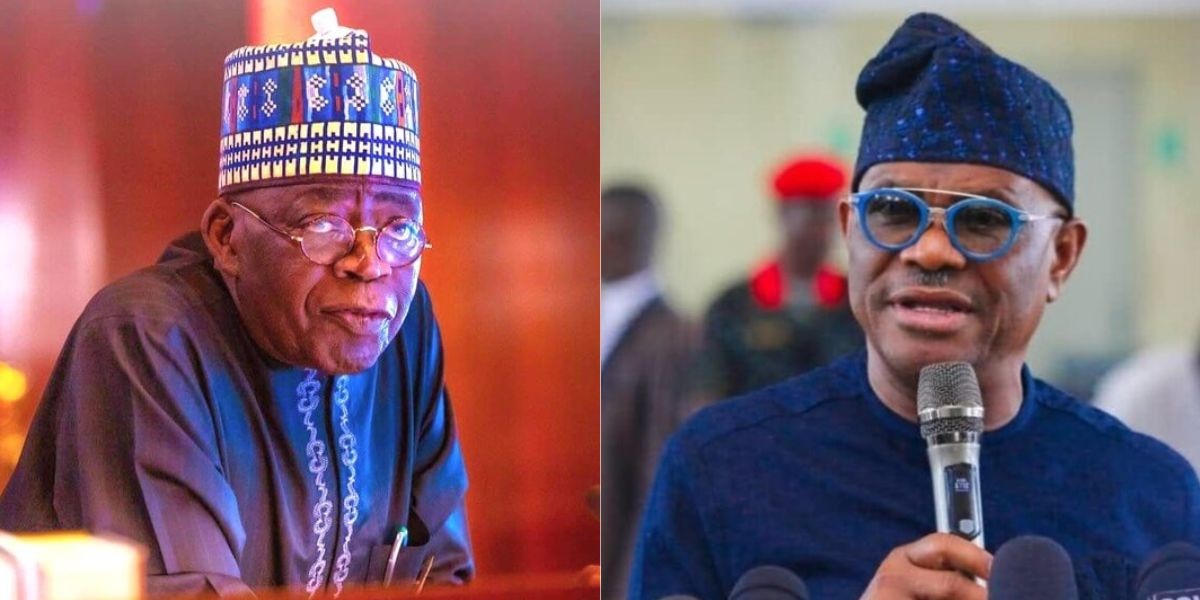
BY BOLAJI AFOLABI
Established in 1994 by the military administration of late General Sani Abacha, the Abuja Investments Company Limited, (AICL) is positioned as a government-owned investment enterprise charged with the responsibility to drive economic development in the federal capital territory. Its primary goal is to promote strategic investment and boost realistic economic growth of the FCT through different platforms and various approaches. Key functions of the AICL include Business Development; Investment and Development; Public-Private Partnership; Facility Management; and Infrastructure Development. The AICL has several subsidiaries and associates including Abuja Property Development Company, (APDC); Abuja Markets Management Limited, (AMML); Abuja Urban Mass Transport Company, (AUMTCO); Abuja Technology Village Free Zone; Abuja Film Village International Limited; PowerNoth/AICL Equipment Leasing Company. Others include Aso Savings and Loans PLC; Abuja Power Company Limited; Abuja Leasing Company; and Abuja Downtown Mall.
From 1994 till the exit of the military from national governance in 1999, the AICL recorded few achievements. During this period, the AUMTCO, and Aso Savings and Loans were established. With the dawn of democratic government in 1999, it was expected that the FCT, being an emerging federal capital will benefit hugely from the activities of the AICL. However, nothing much was achieved between 1999 and 2003. Somehow, Mallam Nasir El-Rufai, who administered the FCT from July 2003 to July 2007, was able to change the tide. Under his watch, the AICL came alive, recorded some measure of visibility and attracted positive public perception. Sadly, the AICL took a downward slide thereafter. None of the past ministers; Aliyu Modibbo Umar, Adamu Aliero, Bala Mohammed, and Muhammed Musa Bello provided the necessary political will and support for the AICL to maximally attain full potential. Indeed, it got worse between 2015 and May 2023 that many residents forgot that the company was still existing.
Many critical stakeholders were worried about the depth of neglect, static state, and institutional damage that the AICL was subjected to. Patterned after similar agencies in some developing nations, where measurable strides are achieved, the reverse happened with the AICL, that it became recurring causes of worries, and regrets to many people. Alhaji Aminu Mohammed, a former staff member of FCTA said, “it was shameful that the company remained largely dormant for many years.” Corroborating, Mr. Gilbert Gyang, an Abuja based investment expert declared, “the AICL, especially during the last administration was arguably comatose. It merely existed on paper, there was no visible investment initiative geared towards economic growth in the federal capital.” For Ms. Winifred Anosike, former banker, and development consultant, “it’s painful that the company was practically inactive for years. It was not only affecting economic growth in Abuja but impacted negatively on people and firms with result-driven initiatives who desired to contribute actively to the development of the capital city.”
With the emergence and subsequent inauguration of President Bola Tinubu on May 29, 2023, key players in the investment sector were hopeful that, the AICL may breathe again. Many hinged their thoughts on Tinubu’s background and experiences in accounting, financing, investment, governance, and leadership. Though with caveats; the choice of who minister’s FCT will be pivotal. Convinced that the AICL should be the “engine room” of economic growth and development of the capital city, many hoped that Tinubu will deploy the appropriate person to oversee the strategic ministry. Some stakeholders concluded that a wrong choice may consign the AICL into the “wilderness of inactivity” and likely extinction. Somehow, key players in the investment sector, at different fora and platforms were upbeat that Tinubu will pick the right person, who they hope will lead the way towards enabling the AICL to get back its mojo.
In August 2023, the deployment of Barrister Nyesom Ezenwo Wike as the Minister of the FCT; the 8th since Nigeria’s return to democratic government elicited public endorsement. Tinubu’s choice was largely celebrated by many stakeholders, as it renewed optimism about the prospects of AICL reviving its activities. Cognisant of Wike’s legendary achievements, as Rivers state Governor where he embarked on massive infrastructure development and more, turning the “Treasure Base” to the central investment hub in the South South zone, and emerging as second to Lagos state, many were confident that “light will come” to the AICL. A similar spate of enthusiasm and expectations was prevalent in and around the AICL. Many of the staff members also shared the positions.
The atmosphere at the Garki District offices of AICL on April 7, 2024 was ecstatic when news filtered in that Wike had appointed Dr. Maureen Tamuno as the Group Managing Director. A few hours later, it turned to frenzy after goggle checks were done by some staff members to have glimpses of her profile. Impressed, and satisfied with her multi-disciplinary academic background, and multi-faceted careers, her appointment was described as well-thought, and well-deserving. The unanimity of opinion was that, being a round peg in a round hole, the AICL will leverage on her far-reaching experiences and exposures as a former lawmaker, seasoned diplomat, public administrator, and boardroom strategist.
Aware and ready for the challenges ahead, many staff members were visibly excited when Tamuno assumed office the following day. Thus emerging as the first female chief executive of the AICL, since its 30 years of existence. Described as an accomplished technocrat with identifiable achievements in leadership, strategy, diplomacy, administration, and consulting, Tamuno, in her maiden speech confirmed the postulations of staff members. She emphasized her, “commitment to open-door policy to all staff, urging everyone to operate at the highest standard of transparency, confidentiality, accountability, and ethical business practices.” Continuing, she assured staff members that her, “strategic approach and consumer-centric philosophy are expected to propel the AICL to new heights of success.”
From reports, challenged by the enormity of the task ahead, conscious of the hugely untapped potential of the AICL, buoyed by the political support of Wike, and encouraged by the passion of the staff members, Tamuno literally hit the ground running. As a globally-recognized business development, management, and investment professional, she approached her assignment with iron-cast resolve, and the precision of a surgeon. First off, she embarked on critical reviews and overview of the AICL trajectory from inception; identified germane issues; evolved strategies for re-positioning the company; enunciated quick-wins, short-term, medium-term, and long-term measures for development, and some others. All these were geared towards delivering (or surpassing) the Ministerial mandate, and also ensuring that the AICL contributes its quota to Tinubu’s “Renewed Hope” agenda.
Indeed, it is imperative to note that the AICL, under the superintendent of Tamuno has literally drawn water out of rocks; which before now was largely unthinkable. That the soft-spoken and resourceful amazon; and her team were able to make noticeable impact within just one year, speaks volumes about her ingenuity, and indomitable spirit. In a broad sense, these achievements include encouraging economic diversification; expanding investment opportunities; exploring business and investment exchanges; deepening subsidiaries collaboration; and fostering diplomatic relationships.
In practical terms, the AICL, through some landmark initiatives has provided the platform for the promotion of trade and commerce, as well as economic growth and sustainable investment in the FCT. It is imperative to recall some of these laudable and trail-blazing projects. A few days back, the solar powered Farmers Market in Utako District and Kugbo International Market were commissioned by the FCT Minister of State, Dr. Mariya Mahmud. Speaking at the epoch making events, Mahmud eulogized Tamuno for completing the first-of-its-kind projects which, “would provide employment opportunities for a wide range of people in line with the “Renewed Hope” agenda.” While explaining that the projects are under the Public Private Partnership initiative of the AICL, Tamuno promised that, “under the Build Operate and Transfer (BOT) arrangement, the government will combine with the private sector to create profitable and sustainable public infrastructure. We identified Small and Medium Enterprises, (SMEs) as the backbone of any prosperous economy, because they create jobs that drive sustainable economic growth.” To underscore AICL’s commitment towards encouraging the informal sector, shops were gifted to some hardworking traders from all the six Area Councils of the FCT.
In October 2024, the AICL organized a two-day Abuja Business and Investment Summit with the theme: “Optimizing Investments Through Partnership.” The event, geared towards promoting investment opportunities in the FCT, was attended by major stakeholders in finance, investment, manufacturing, and other sectors. Participants opened new alliances, partnerships, and collaborations for new opportunities and innovations that will lead to micro and macro development. Tamuno, who by the way was one-time Nigeria’s Ambassador to Jamaica is leveraging on her diplomatic credentials and network to re-position the AICL. She is regularly engaging, and exploring investment opportunities with foreign countries through their diplomats in Nigeria. Through her participation at the maiden Nigeria-Kazakhstan Business Conference which was held in Abuja, in 2024, there are advanced plans for the establishment of city-to-city flights between both countries, as well as collaborations in agriculture, education, technology, logistics, and more.
Agreed, the journey is somewhat far but the AICL, under the new chief executive has shown unbridled commitment, and unflinching fervor in elevating the status, and relevance of the company towards engendering meaningful growth and development of the FCT. Tamuno has shown relentless drive and boundless energies towards justifying the confidence reposed in her by Wike. Posting an encouraging report-card in one year deserves commendations and encouragement. Mr. Olugbenga Okanlawon, an Abuja based public affairs analyst declared that, “she has shown that she is the right person for the job. Considering what the AICL has achieved in one year, it is clear that more grounds will be covered in terms of growth and development.” A frequent caller to the AICL who preferred anonymity said, “the GMD has brought a new lease of life to the place, and everybody has imbibed her can-do-it spirit with much pride, and belief.”
* BOLAJI AFOLABI, a Development Communications specialist was with the Office of Public Affairs, The Presidency, Abuja.
Opinion
Dismantling the false Narrative of a “Coup” in Rivers State
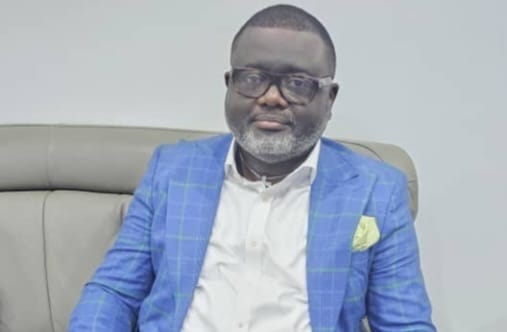
By Jones Onyereri
The assertions that President Tinubu’s intervention in Rivers State constitutes an unconstitutional power grab or a “military coup in civilian disguise” fundamentally misrepresent the legal, political, and security realities that necessitated federal action. Far from being a partisan maneuver, the declaration of a state of emergency and subsequent measures were lawful, proportionate, and grounded in the imperative to prevent a total collapse of governance and public order. Below is a thorough rebuttal to the allegations:
The Nigerian Constitution explicitly empowers the President to declare a state of emergency under Section 305 when there is a clear threat to public safety or a breakdown of governance. The escalation of pipeline vandalism by militants—which crippled economic activity, endangered lives, and exacerbated environmental degradation—coupled with the Supreme Court’s February 18 judgment highlighting governance failures in Rivers State, provided incontrovertible justification for federal intervention. The claim that “no emergency existed” ignores the state government’s demonstrable inaction in addressing these threats, which risked spiraling into wider violence. Emergency powers are, by design, temporary and exceptional, aimed at restoring stability, not undermining democracy.
The appointment of Admiral Ibok-Ete Ibas as Sole Administrator aligns with constitutional provisions for federal intervention during crises. Section 11 of the Constitution permits the National Assembly to legislate for a state in extraordinary circumstances, and the President’s action enjoys implicit legislative backing as a stopgap to avert anarchy. Admiral Ibas, a retired military officer with no overt political ties, was selected for his administrative expertise, not as a proxy for any faction. His mandate is strictly limited to stabilizing the state, facilitating the return to democratic governance, and ensuring the security forces can operate without partisan interference. To equate this with a “military coup” is hyperbolic and disregards the transparent, legal framework guiding his role.
Critics allege defiance of Supreme Court orders regarding state funds, but this misinterprets the interplay between judicial mandates and emergency executive authority. While the Court initially restricted financial flows to Rivers State due to governance disputes, the escalation of the crisis necessitated federal release of funds under the “doctrine of necessity” to sustain critical services like healthcare, education, and infrastructure. The Constitution prioritizes the security and welfare of citizens (Section 14(2)(b)), and the President’s duty to uphold this principle supersedes rigid adherence to procedural norms during emergencies.
The Sole Administrator’s actions, including the formulation of regulations and restructuring of local government administrations, operate within the bounds of his provisional mandate. These regulations require approval by the Federal Executive Council (FEC), ensuring oversight and accountability. The replacement of local government officials was not a “power grab” but a necessary step to dismantle networks complicit in revenue diversion or inefficiency. The Supreme Court’s insistence on democratically elected local governments remains sacrosanct, but interim appointments during emergencies are globally recognized mechanisms to restore functionality before elections can be organized.
Claims that the Administrator has overstepped by preparing a budget or appointing a Secretary to the State Government (SSG) ignore the practical realities of governance. In the absence of a functional State Assembly, provisional budgets based on existing frameworks ensure continuity of public services. Similarly, the appointment of an SSG—a routine administrative role—falls within the Administrator’s authority to maintain bureaucratic operations. These measures are neither permanent nor unconstitutional; they are transitional tools to prevent total institutional paralysis.
The narrative that this intervention serves Minister Wike’s political interests is speculative and distracts from its stated purpose. Restructuring boards and commissions, including the Rivers State Electoral Commission, aims to depoliticize institutions vital to free and fair elections. The focus on “Wike loyalists” assumes nefarious intent without evidence, whereas the Administrator’s appointments could equally reflect efforts to engage experienced personnel familiar with the state’s administrative landscape. The assertion that federal actions target Governor Fubara’s allies conflates routine accountability with persecution; in crises, restructuring is inevitable to eliminate inefficiency or bias.
Regarding the House of Assembly reconstruction, federal involvement ensures the project adheres to timelines and standards, avoiding further delays that could destabilize legislative functions. The Governor’s progress, while commendable, does not negate the need for independent oversight in a volatile environment.
President Tinubu’s intervention is neither indefinite nor authoritarian. Emergency measures will lapse once security is restored, and democratic structures are reinstated. The National Assembly retains the authority to review and curtail these actions under Section 11, ensuring checks and balances. To frame this as a “2027 political takeover” is a cynical distortion of a lawful, necessary intervention to prevent Rivers State from descending into chaos.
In conclusion, the allegations of a “civilian coup” or unconstitutional power grab disregard the constitutional safeguards and urgent pragmatic considerations guiding federal actions. The President’s duty to protect lives and livelihoods in Rivers State transcends political expediency. While vigilance against overreach is prudent, dismissing all stabilization efforts as partisan machinations undermines the legitimate pursuit of peace and order. The people of Rivers State deserve functional governance, not perpetual crisis—and federal intervention, however imperfect, is a constitutional means to that end.
Rt Hon Sir Jones Onyereri PhD, KSP, FCIPAN
April 12, 2025
-

 News22 hours ago
News22 hours agoAutonomy: 774 LGs challenge FG, states in court Tuesday
-
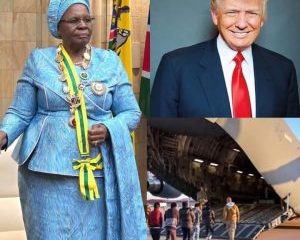
 News15 hours ago
News15 hours agoJust in: Namibia Moves to Deport Over 500 Americans in Bold Visa Policy Shift
-

 News15 hours ago
News15 hours agoRivers women rally in support of state of emergency
-

 News10 hours ago
News10 hours agoYou must refund N300m, Rivers State tells NBA
-
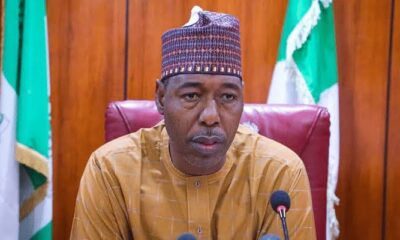
 News21 hours ago
News21 hours agoZulum orders arrest, offers house, scholarship to abused boy in viral video
-

 Politics13 hours ago
Politics13 hours agoBwala accuses Senator Ndume of plans to defect from APC
-
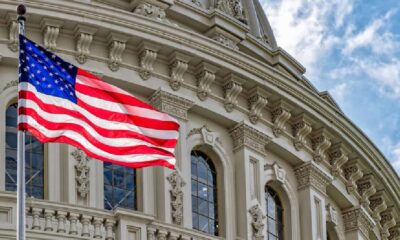
 Foreign10 hours ago
Foreign10 hours agoUS orders 30-day registration for all foreign nationals or face jail, deportation
-
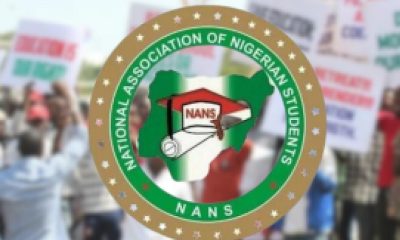
 News23 hours ago
News23 hours agoNANS criticize NASS over proposed bill to fine, jail non voters


















